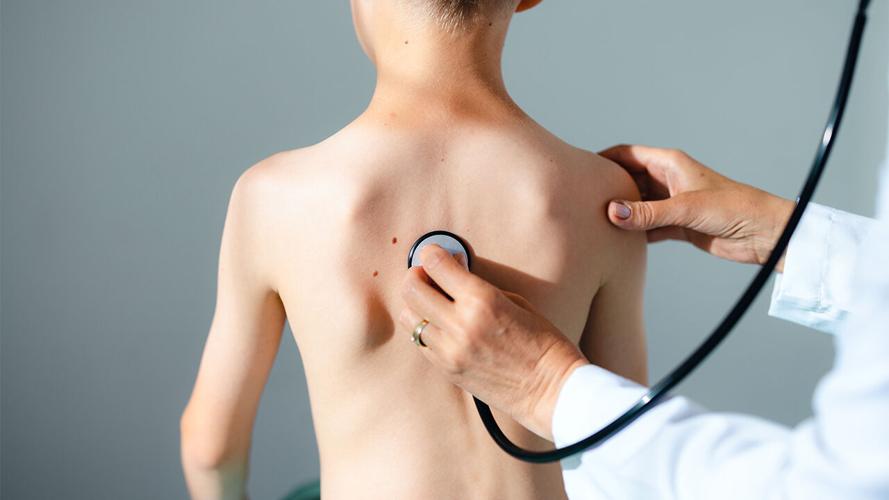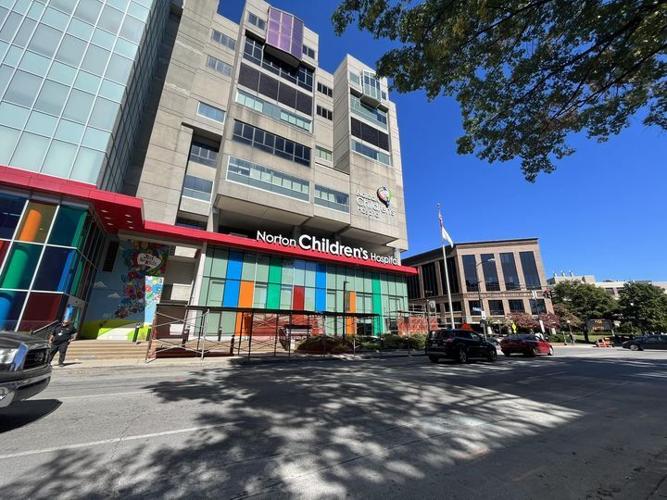LOUISVILLE, Ky. (WDRB) -- There is an "unseasonal spike" in respiratory illnesses in the Louisville area, according to Norton Healthcare.
"There's no question that we have seen a spike, both in the numbers at pediatricians offices and in the number of children presenting to the hospital with RSV," said Dr. Scott Bickel, with the Pulmonology Department at Norton Children's Hospital.
RSV, or, respiratory syncytial virus, is commonly found in young children. But the virus usually doesn't spike until much later in the year.
"It seems different years we're seeing different times of these spikes. Last year we saw a spike earlier, kind of in the middle of August," said Bickel.
According to Norton Healthcare, RSV is typically seen in the months of December through February.
"We might get over this initial spike and see a little bit of a down trend, but my suspicion is we'll continue to see levels of cases throughout the winter," said Bickel. "I don't think, just because we're spiking now, means we're out of the woods later."

Bickle said in the past three weeks, Norton has seen more than 200 hospital admissions for RSV. That's more than double compared to the same time last year, when hospitalizations were at 97.
"RSV can get scary fast," said Michelle Walsh, who lives in Mt. Washington. Her son, Seth, was recently diagnosed with RSV. He started showing symptoms including a lack of appetite, fever and a bad cough.
"He was coughing like, every couple minutes and it was like a harsh cough," Walsh said.
She also knows of other families with recent RSV cases.
"Some friends of ours, their little kids have respiratory issues where they've had to have breathing treatments multiple times a day. That's when RSV gets really scary," she said.
Seth is a five-time cancer survivor and is no stranger to Norton Children's. Trying to stay healthy and taking precautions is part of his daily life. Walsh is happy that, after several days at home, he's now back in the classroom and feeling much better.
"He is back at school, but I mean, he was out, it was a rough probably nine days he was really sick," Walsh explained. "His doctors have cleared him to return. They just said his cough will probably linger for a couple weeks."
Bickel said parents should keep in touch with their kids' pediatrician and, if symptoms progress to shortness of breath or not eating or drinking much at all, an ER trip may be necessary.
Bickel said many kids will recover after a week or two with fluids and rest, but it's important to know the signs and symptoms.
Symptoms of RSV are very similar to a common cold, such as coughing, sneezing, runny nose and fever.
Children with asthma may experience more troublesome symptoms such as wheezing and shortness of breath, which might require medications such as albuterol and, in some cases, steroids.
Infants and young children can develop bronchiolitis or pneumonia (both are lung infections) from RSV infections. Bronchiolitis causes inflammation of small airways and significant mucus production, which makes breathing difficult for patients.
Norton health officials said RSV is an infection that has to run its course, and because it is a virus, antibiotics will not help treat it. According to Norton Healthcare, "saline drops can help thin mucus, and gentle nasal suctioning with a suction bulb can remove some clogged mucus to make breathing easier, especially before and after feeding and sleeping."
Norton doctors encourage parents to take steps to preventing the cold and RSV by keeping children home from school or daycare if they are sick and by practicing good hygiene.
Ways to prevent the virus include regular handwashing and disinfecting household items.
While RSV is typically talked about regarding babies and children, adults can get sick as well. Bickel said people over 65 with conditions like COPD or heart disease can also be at risk.
Related Stories:
- Doctors report treating double number of young RSV patients at Louisville hospital
- Louisville research clinic chosen as only US facility to study RSV in adults
Copyright 2022 WDRB Media. All Rights Reserved.














